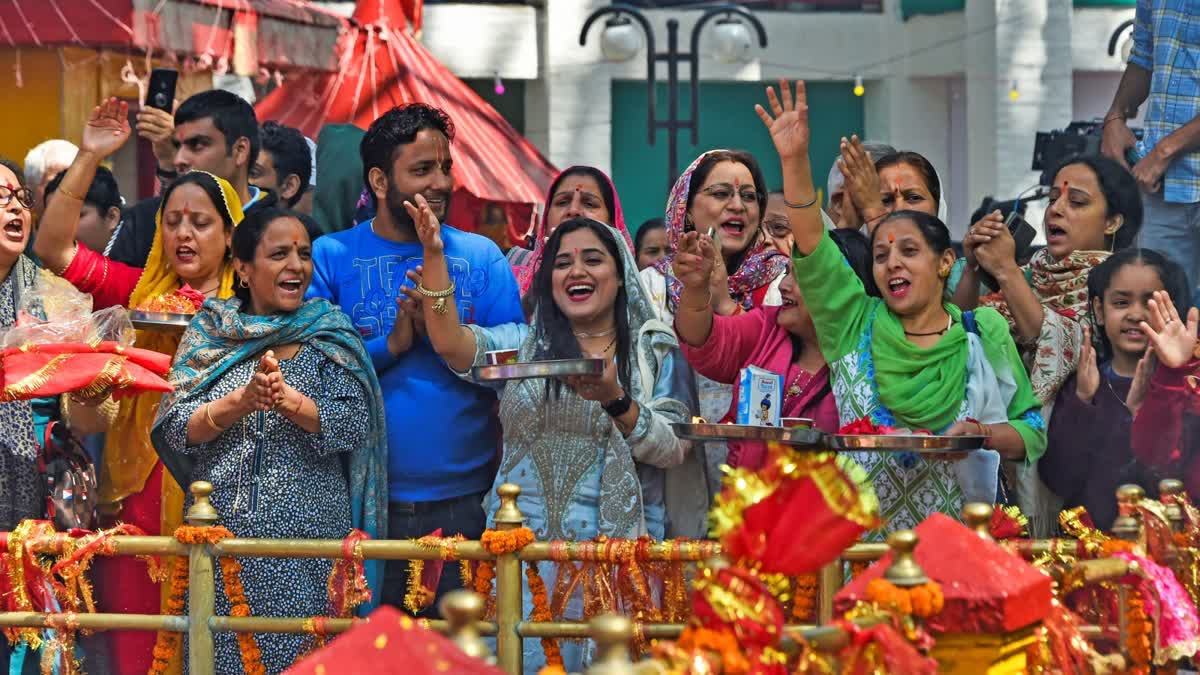Srinagar: For Kashmiri Pandits, a community living away from their homeland, Kashmir, for over three decades, hope has been a flickering flame—often promised, seldom delivered. On the 35th anniversary of their migration in January this year, they turned to Jammu and Kashmir Chief Minister Omar Abdullah for their return and rehabilitation in the valley.
More than 62,000 Kashmiri Pandits fled the valley to Jammu, New Delhi, and other parts of India in the 1990s after violence escalated, leaving their homes for safety. It was preceded by selected attacks by militants, which, according to government data presented in the J&K Legislative Assembly in 2010, killed 219 members of the community.
In a letter addressed to Abdullah, the community pointed out the absence of a “healing touch” in the years following their forced migration in January 1990. Signed by representatives like Prof Sudhir Sopory, Alka Lahori, and Ramesh Raina, the former president of the All India Kashmiri Samaj, they see “a ray of hope in the election manifestos of the political parties, including the National Conference.”. Especially, this comprises their return and rehabilitation to Kashmir.
“If anything has been missing, it is the healing touch,” wrote Raina, a prominent Kashmiri Pandit leader. “It is this psychological distress that needs your healing.”
Originally coined by Peoples Democratic Party (PDP) founder and former Chief Minister Mufti Mohammad Sayeed, the “healing touch” policy meant reconciliation and rehabilitation policy for people affected by the years of armed militancy in the region. But, for Kashmiri Pandits, it remains an unfulfilled promise, with Raina alleging they are politically and electorally “orphaned”.
The National Conference’s return to power, Raina suggested, could mark a turning point by ensuring a healing touch to the community to overcome the harrowing ordeal following their migration in January 1990. Besides, it also demanded minority status for the KP community in Jammu and Kashmir.
He said they expect the “popular” government led by Abdullah, formed after more than six years of direct central government rule, to address their core concerns, as the Bharatiya Janata Party (BJP)-led government has failed to rehabilitate them in the valley, leaving them disenchanted.
“The BJP government has done nothing new, and they have followed former Prime Minister Manmohan Singh’s rehabilitation program announced in 2006,” said Raina. “We have been shouting from the rooftops for years. Ours is an orphaned community with no BJP having no blueprint for our return. They use us as an election card.”
Disillusioned with the central government’s rehabilitation efforts, a group of Kashmiri Pandits has registered a housing society in Srinagar to seek land from the J&K government at nominal rates for permanent resettlement in the valley.
Many Pandits claim their homes were plundered and encroached upon, forcing some to sell their properties at distressed prices. In August 2021, the government launched an online portal to allow migrants to report cases of encroachment or distress sales.
Even as a dozen Kashmiri Pandit candidates attempted unsuccessful bids in the J&K Legislative Assembly elections and pushed for reserved assembly seats during post-Article 370 delimitation, the Modi government’s two nominated seats for Pandits and Pakistan-occupied Kashmir refugees in the Assembly have felt more symbolic than substantive.
In their letter, they highlighted the rehabilitation and return of the community promised by the ruling NC and its alliance partner Congress in their poll manifestos but sought a timeline for fulfilling them.
The leaders highlighted the poll promises, including the return and rehabilitation of Kashmiri Pandits as per the Prime Minister’s program, to be implemented in letter and spirit. Besides, setting up the Truth and Reconciliation Commission to heal wounds, dispel misconceptions, and bridge divides within communities and temples, shrines, and religious places, bills are to be formulated, tabled, and advanced in the J&K Legislative Assembly. It also demanded temporary housing be expedited with the time-bound completion of the housing for Prime Minister Package Employees in Kashmir.
“It is a significant moment for the community,” Raina wrote to Abdullah about his leadership, saying they are optimistic about the positive changes it could usher in to address the fear and insecurity that have loomed over them for decades.
“It will bring to the place and help in changing the ecosystem of fear, insecurity, and threat perception that has been looming large over the people, especially displaced Kashmiri Pandits,” he said.
In the past, the Kashmiri Pandits, like Raina, had seen promise in the BJP’s general election manifesto in 2024. But now, he feels that the last more than a decade has seen no movement except for a hike in monthly relief to the community in 2018.
To facilitate the community’s return, the central government announced measures under the Prime Minister’s Reconstruction Plan in 2008 and the Prime Minister’s Development Package in 2015. These include the creation of 6,000 jobs for Kashmiri Pandits in the valley, with 5,724 migrants appointed as of August 2024, according to official data. Additionally, 6,000 transit accommodations are under construction in northern, central, and southern Kashmir to house returning employees.
“When the then President of India, Pranab Mukherjee, presented the BJP government’s agenda in Parliament in 2014. The rehabilitation of Kashmiri Pandits was prominently mentioned. For all these years, we have been waiting for the promise of rehabilitation,” Raina added.
Read More



